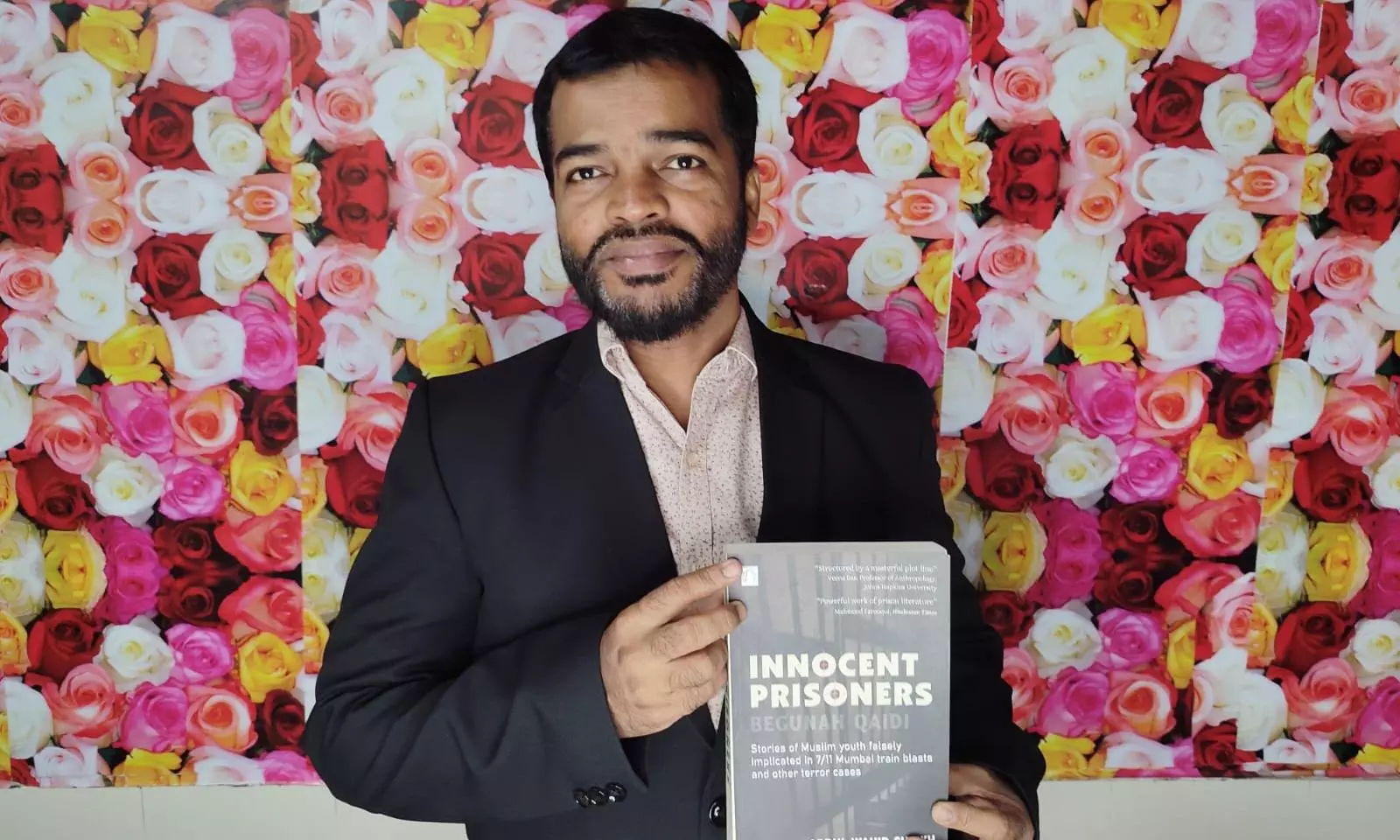
2006 Mumbai blasts: How acquitted Wahid Shaikh continued to fight for justice
Abdul Wahid Shaikh, acquitted in the Mumbai train blasts case in 2015, details his journey from jail to legal scholar, fulfilling a promise to his co-accused

The acquittal of the 12 accused in the 2006 Mumbai local train blasts case by the Bombay High Court earlier this week — a decision now stayed by the Supreme Court — was the tale of a promise kept for Abdul Wahid Shaikh.
Shaikh was arrested along with those 12 men in connection with the synchronised train blasts that claimed over 180 lives on July 11, 2006, and charge-sheeted by the Maharashtra Police.
A ray of hope
Once behind bars, he realised there was no coming out soon even though he had nothing to do with the blasts. But hope came in the shape of Advocate Shahid Azmi.
“Azmi, who himself was an accused in a terror case once and later became a lawyer, advised some of us to study law while in jail. He prepared an application and moved it in the court of judge Mrudula Bhatkar on my behalf and also for Dr Tanveer Ansari who was my co-accused,” recalled Shaikh.
“Judge Bhatkar was very pleased with the application and allowed us to take up the law course. She later got promoted to the Bombay High Court,” he added.
Sheikh was the only accused in the case to be acquitted in 2015 by the trial court, which awarded the death sentence to five of the accused, while seven were imprisoned for life. Interestingly, the police did not appeal against Sheikh’s acquittal in high court.
Also read: ‘Trusted by Pak army, was in Mumbai during 26/11’: Tahawwur Rana’s startling disclosure
Armed with knowledge of law
“Though the application was allowed for the study of law, I could not take up the course immediately due to various reasons. First, my father died and, later, Shahid Azmi was murdered in his office,” Shaikh told The Federal.
Shahid’s life was turned into a celluloid story—to much critical acclaim—by director Hansal Mehta. It was titled Shahid, with actor Rajkummar Rao playing the role of the slain advocate.
“But once the trial court proceedings were completed, I took up law again in 2014. The trial court had reserved the judgement for almost a year. I completed law once I was a free man. Now I have done LLM degree, too, and also a have a PhD in law,” he narrated.
“Dr Tanveer could not complete law,” added Shaikh. But two other accused in the case, Ehtesham Siddiqui and Sajid Ansari, are now studying law, he said.
A promise made
Once acquitted by the trial court in 2015, Shaikh was taken back to the prison by that evening to complete the formalities of his release. But he decided to spend one more night in the jail despite being entitled to get released at once.
“I was then summoned by the jail authorities who asked me whether I would like to be lodged with the rest of the accused for that night, as they had seen in many cases that the acquitted person faced the wrath of his co-accused who were not fortunate enough to be released by the court. I declined the offer, and the jail authorities took it from me in writing that I would like to spend the rest of my time with the co-accused,” said Shaikh.
“That night, my co-accused asked me to promise them that I would not forget about them and fight for their release, too, as they were not involved in the train blasts either. I promised to fight for them. Except Sajid, who is my brother-in-law, I had not met any of the accused before we went to jail together. We dealt with so many things together in jail — setbacks and small moments of happiness. I could not leave them behind,” said Shaikh.
Also read: US designates group behind Pahalgam attack 'Foreign Terrorist Organisation'
Lives destroyed
They spent nine years together in jail as undertrial prisoners. But 10 more years passed before the rest of the accused got a glimpse of hope through the high court acquittal — which has now become uncertain again because of the apex court stay. In the meantime, one of the death-row convicts — Kamal Ansari — died of COVID-related complications in 2020.
“We knew we all were innocent, but the evidence of our innocence came only in 2008, in the form of the arrest of Sadiq Shaikh,” said Shaikh.
Sadiq, an alleged member of the terror outfit Indian Mujahideen, reportedly claimed during police interrogation that it was his group that carried out the train blasts, but he refused to accept responsibility in court.
Once out of jail, Shaikh, besides completing his law courses, also helped the lawyers of the other accused in court and wrote a book titled Begunah Qaidi (Innocent Prisoners). “Now I want to write part two of Begunah Qaidi, in which I will narrate the stories of my former co-accused,” said Shaikh.
The 11 freed men have now been asked to respond to the appeal filed in Supreme Court by the Maharashtra government even though their release from prison has not been stayed.

